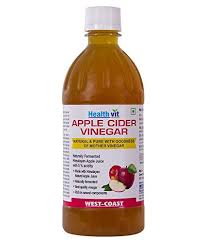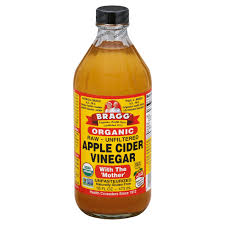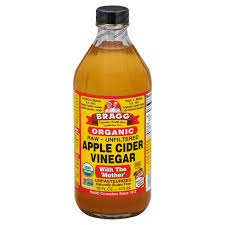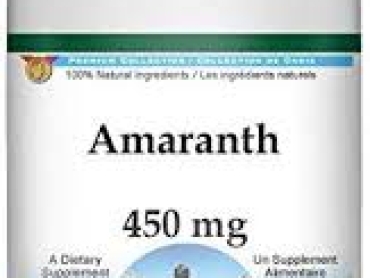Apple Cider Vinegar- Buy original apple cider vinegar in Kenya Tanzania Uganda Ethiopia Somalia Sudan pure apple cider vinegar shop online
36$
- Low blood sugar when combined with diabetes medication or insulin, per past research (22)
- Tooth erosion, according to a 2014 study in Clinical Laboratory (23)
- Chemical skin burns, noted a study published in June 2015 in the Journal of Clinical and Aesthetic Dermatology (24)
- Esophageal burns, according to a previous study (20)
- Gastrointestinal distress, per the University of Washington (21)
You may have a friend who insists on taking apple cider vinegar shots in the morning for fat burning. Or you may have seen apple cider vinegar drinks in the refrigerated section at the grocery store. With the exploding popularity of this seemingly basic pantry staple, you’re probably wondering what the buzz is all about.
What Is Apple Cider Vinegar Exactly?
First, let’s explore exactly what apple cider vinegar, or ACV, is. ACV is made from fermented apples and water. Like other vinegars, ACV has 5 percent acidity. (1)
You may notice that there are different types of ACV available at the store. For instance, distilled ACV looks clear in the bottle, and it may be the one you’re most familiar with. (2) But raw, unfiltered or unpasteurized ACV contains a cloudy substance that floats around in the mix. This is called the “mother” and is formed by natural enzymes during fermentation. No need to be wary of it: This stringy substance usually settles to the bottom of the bottle; it’s also completely safe to consume. (3)
Regardless of the variety, you do not have to refrigerate ACV, and it will last for a very long time. (3) Vinegar, in general, has an almost indefinite shelf life, according to The Vinegar Institute, an international trade association for vinegar manufacturers. Even if your vinegar changes appearance (it may look cloudier, for instance), it is still okay to be used. (4)
As for nutrition facts, you can be sure that ACV won’t pack on the pounds. In fact, diluted apple cider vinegar contains zero calories per tablespoon (tbsp), as well as no fat, carbohydrates, protein, or fiber. You can think of it as a great way to add a burst of flavor to foods without adding calories or extra salt. (5)
What Are the Possible Health Benefits of Apple Cider Vinegar?
ACV has garnered superfood status, and fans of the vinegar say that it can cure nearly everything that ails you (weight gain, digestive issues, skin woes). Truth is, there are few studies that support these uses, so while you can add it to your diet without significantly upping your risk for weight gain, it’s best to stay realistic about it.
Weight Loss
One way ACV is weight loss friendly is it has very few calories. Yet you may also have heard that some people take a shot or tablespoon of apple cider vinegar to stimulate fat burning. The fact of the matter is, taking ACV will likely do little to actually change your body composition or weight. As registered dietitian Katherine Zeratsky points out for the Mayo Clinic, this thought doesn’t have scientific support behind it — and the only way to actually lose weight is through a generally healthy diet and by incorporating fitness into your routine. (6) The advice is far less flashy than supplementing with something as trendy as ACV, but it’s exactly what really works.
High Cholesterol
That said, there is some preliminary research suggesting that ACV may be beneficial for health. One animal study showed that obese rats who took apple cider vinegar daily saw a reduction in total cholesterol, LDL (“bad”) cholesterol, and triglyceride levels due to its antioxidant benefits. (7) It’s important to note, though, that this study was done only on rats, so it’s not known if these findings hold up when applied to humans.
Type 2 Diabetes
One plus about vinegar is that it’s been shown to possibly help people with type 2 diabetes. In fact, one past study in the Annals of Nutrition and Metabolism found that taking 2 teaspoons (tsp) of vinegar with a meal containing complex carbohydrates reduced postprandial glycemia (a spike in blood sugar after a meal) by 20 percent compared with a placebo. That measure is important when it comes to managing the disease. (8) What’s more, a randomized, placebo-controlled study in the European Journal of Clinical Nutrition that looked at acetic acid (vinegar) found that people taking vinegar before a meal had an improved insulin response. (9)
That said, research isn’t in agreement across the board. An earlier small study found that ACV didn’t decrease the body’s glucose response following a carb-rich meal. (10) All that is to say, the effect isn’t so clear.
More on Possible Apple Cider Vinegar Benefits
Another piece of evidence for vinegar’s effects on people with diabetes: A study in Diabetes Care found that people with diabetes who drink 2 tbsp of ACV before bed with 1 ounce of cheese had reduced fasting glucose levels the next morning compared with a control group who ate the cheese snack with water. (11) As promising as that sounds, it’s important to note that this research involved only 11 participants. It’s an extremely small sample to generalize to the public. And it goes without saying that if you have type 2 diabetes, you should work closely with your healthcare team on the best way to control the condition, rather than relying on ACV.
Yeast Infections
Finally, beyond weight and diabetes, ACV may have some surprising properties. In a case study in the journal Alternative Therapies in Health and Medicine, doctors cured a 32-year-old woman suffering from chronic yeast infections with topically applied apple cider vinegar. (Researchers mentioned that other integrative treatments weren’t successful.) (12) That said, experts caution against putting anything in your vagina, as it can disrupt its natural pH balance. Do not try this on your own without consulting your gynecologist first.
Acid Reflux
It seems counterintuitive that taking vinegar could decrease acid production, but that’s the reason why ACV is suspected to be useful in addressing acid reflux and heartburn, per a review published in July 2019 in the journal Current Gastroenterology Reports. (13) That said, there are almost no published reports examining if acid reflux can be treated with ACV, the researchers explain.
Ulcerative Colitis
Taking diluted vinegar may help improve digestion, though there’s a lack of research supporting its use in chronic autoimmune conditions like ulcerative colitis (UC). Giving UC mice diluted apple cider vinegar for a month lowered levels of inflammation in their colon and increased the amount of healthy bacteria in their gut, per a preliminary study published in January 2016 in the Journal of Agricultural and Food Chemistry. (14) Keep in mind that this was a single animal study, and researchers are far off from recommending it as a treatment.
Reduced Inflammation
Some people suggest taking apple cider vinegar as a treatment to manage symptoms in inflammatory conditions such as rheumatoid arthritis (RA), multiple sclerosis (MS), and ankylosing spondylitis (AS). One explanation is that the vinegar may reduce inflammation and lessen symptoms. However, there are no studies that directly explore ACV as a therapy for RA, MS, or AS.
Where ACV may be useful is for possible relief from some gastrointestinal symptoms, which may occur in people with these health conditions. Taking vinegar may also help improve gut bacteria, which may affect inflammation, but research needs to be done to explore this possibility. Talk to your doctor if you have one of these conditions before trying ACV.
More on Fighting Inflammation With Food
Stress Relief
For people with diseases like hepatitis C and HIV (human immunodeficiency virus), as well as mental health conditions, there’s speculation about whether ACV can aid in stress management (likely by reducing inflammation) and thus help manage the conditions. While the vinegar is unlikely to interact with HIV medication, there’s no indication that it can help with disease management. For hepatitis C, some people online claim that ACV can aid in liver detoxification to improve the health of this organ. Again, there are no peer-reviewed studies that examine this claim. Speak to your doctor to determine your treatment plan.
Skin Conditions
There may be limited benefits for the use of topical ACV on a variety of skin conditions. But research published in June 2015 in the Journal of Clinical and Aesthetic Dermatology cautioned against applying pure, undiluted vinegar directly to skin, noting that this practice can cause chemical burns. (15)
Eczema A study published in December 2016 in the Annals of Dermatology found that treating the skin of mice that had atopic dermatitis (eczema) with acidic creams — including a vinegar cream — resulted in fewer flares and improved barrier function for better hydration. (16) Since this study was done on animals and the ACV was added to a cream (rather than pure vinegar), talk to your dermatologist before using ACV topically.
Psoriasis According to the National Psoriasis Foundation (NPF), if you have scalp psoriasis, applying organic ACV to the area can help lessen the itch from scaly patches, a common symptom associated with the autoimmune condition. (17) There are some considerations to make before using it, the NPF says: Use diluted vinegar to decrease the risk of burning, and don’t apply to any area of the skin that’s cracked or bleeding.
Psoriatic Arthritis Some patients with psoriasis also develop joint pain and stiffness, a condition called psoriatic arthritis. While there’s a lack of research on treating disease symptoms with ACV, diluting the vinegar and applying it to plaques may change the pH of skin to encourage healing.
Learn More About Possible Apple Cider Vinegar Benefits
What Are the Side Effects of Apple Cider Vinegar?
When consumed in moderation, ACV is generally safe. But ACV isn’t available in just liquid form. You can also buy ACV tablets and take it as a supplement. Companies tout these pills as a powerful source of vitamins and minerals or for weight loss or “cleansing” support. (18,19) But it’s important to practice caution when taking these versions of ACV.
Earlier research notes that it’s not clear that some ACV supplements even contain apple cider vinegar in the first place, and many contain several times the amount of acid found in regular vinegar, which could lead to burns when swallowed or even be toxic. (20) Always have a discussion with your doctor about anything you take, even if it seems as innocent or natural as vinegar.
More on Natural Remedy Dangers
What’s more, in this case, too much can really be a bad thing. Drinking excessive amounts of ACV could decrease potassium to hazardous levels, something that can be dangerous if you have a condition such as high blood pressure. Since ACV may interact with medication, this is another instance where you should tell your doctor if you’re regularly taking ACV, according to the University of Washington. (21)
Other reported side effects include:
When Using Apple Cider Vinegar for Disease Treatment Is Risky
There’s also the risk of believing vinegar can do things that haven’t been proved. For example, there’s no proof that apple cider vinegar will lower high blood pressure, or hypertension, according to UChicago Medicine. (25)
There is also the unfounded claim that apple cider vinegar can support treatment for schizophrenia. While there is emerging understanding of the role that the gut microbiome plays in psychiatric conditions, it’s a far leap to assume that ACV can improve gut health in such a way that it could directly affect symptoms. This can be particularly risky if you go off of medication without your doctor’s knowledge in order to try an alternative remedy like ACV. Do not do this.
Importantly, there is also an internet rumor that vinegar can be used to treat cancer. As CNN pointed out, this dangerous claim is largely based on research where Japanese scientists inhibited the growth of cancer cells with vinegar. However, this was in petri dishes — far from people. They note that there are no studies in humans. If you have cancer, seek doctor care for treatment. (26)
Learn More About Apple Cider Vinegar Side Effects
Apple Cider Vinegar Uses
One of the most common — and classic — uses of ACV is in food preparation. As the U.S. Department of Agriculture’s MyPlate guidelines point out, distilled ACV is a natural fit for salads and marinades, as well as canning and pickling (the 5 percent acid content allows for pickling). Unfiltered ACV can be used in cooking, salads, and marinades, and a teaspoon (tsp) can be mixed into drinks to give sips some kick. (27) Bragg, another popular vinegar brand, suggests sprinkling ACV over popcorn. As for cooking, the pleasing tang of ACV can have a starring role in coleslaw, barbecued beef, kale chips, and even fruit syrups for mixed drinks. (28)
ACV is also used in many beauty and cleaning products, like shampoo. Overwhelmingly, it’s a safe ingredient. The Environmental Working Group rates ACV as a low overall hazard when in beauty products and an A (or lowest concern) as a cleaning ingredient. (29,30)
When it comes to cleaning, you’re probably already familiar with how white vinegar can be used in cleaning sprays for countertops and windows or as a refresher when added to laundry. However, there are some clever ways to incorporate it into your cleanup routine. ACV can be used to clean sticky scissors, remove sticker residue from surfaces, deodorize a coffee pot, and spray on fabrics to give them a fruity smell. (31)
Learn More About Apple Cider Vinegar Uses
Apple Cider Vinegar Dosage
There’s no universally agreed upon dosage of apple cider vinegar, and suggestions of how much to take vary depending on whom you ask.
Harvard University points out that most recommendations for drinking diluted apple cider vinegar are 1 to 2 tsp prior to or during meals. (32)
The University of Washington, on the other hand, recommends that if you’re taking apple cider vinegar (by the spoonful, as a shot) as a supplement, you ought to stick to a limit of 1 to 2 tbsp at a time. (21)
That said, as mentioned, the ingredient is also used in topical creams and can come in tablet form.
Regardless of the delivery method or amount, there’s no guarantee apple cider vinegar will result in health or weight loss benefits. Simply put, more research is needed.
























